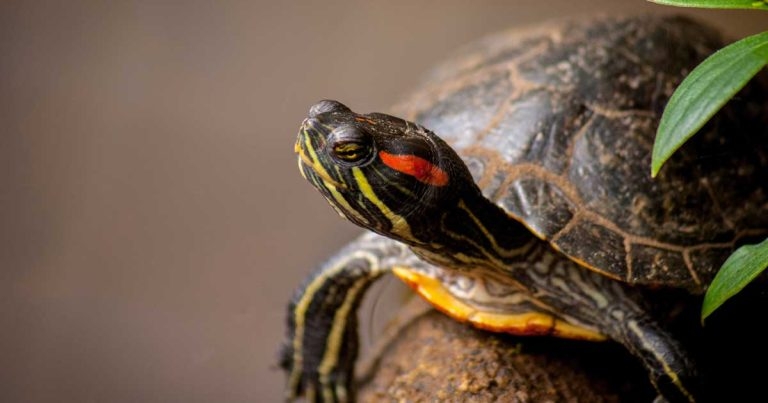8 May 2025
Researchers believe improved reptile education for clinicians may be needed based on the findings of the latest analysis from the RVC’s VetCompass programme.

Image: Tatiane / Adobe Stock
A ”concerning” proportion of pet tortoises, terrapins and turtles in the UK may be dying prematurely, a newly published study has suggested.
Researchers believe improved reptile education for clinicians may be needed based on the findings of the latest analysis from the RVC’s VetCompass programme.
The paper, published in the Plos One journal, examined data on more than 2,000 chelonia, mostly tortoises, which were under primary veterinary care at participating clinics during 2019.
Around 200 (9.9%) of the sampled animals were recorded to have died in the clinical records with a median age of just 7.32 years, compared to the 100-year lifespan that some tortoise species can experience.
The paper described that finding as “concerning”, though it acknowledged that it may reflect a younger population being presented for primary care.
But co-author Dan O’Neill, the college’s associate professor of companion animal epidemiology, said: “As an owner of three tortoises for more than 25 years, these results have further emphasised to me the key roles that correct nutrition, good exercise and protection from predation play in enabling these special animals to achieve their potential century of lifespan.”
The paper, said to be the largest investigation of its kind, also raised concerns about causes of death not being recorded in 44.55% of sampled cases. Dog bites (5.45%) and anorexia (3.96%) were the next most commonly recorded causes of death.
The researchers also acknowledged that accurately ageing the animals can be “extremely challenging” and owners may be less likely to seek veterinary care for them when they are older. More than three-quarters of the animals reviewed were found to have at least one health disorder, with beak abnormalities (16.72%), overgrown nails (11.47%) and shell abnormalities (9.80%) being the most frequently recorded.
The paper noted that while such issues can be linked to systemic disease, they are frequently associated with inappropriate husbandry, demonstrating the importance of vets providing advice to owners on proper care for their animals’ specific needs.
Lead author Jessica May Hornby said: “This research has provided us with a base to start to understand what veterinarians are currently seeing in practice and, therefore, give an insight into the health of the chelonian population.
“People are no longer only keeping the more common species of pets, such as dogs and cats, so this data is vital to understanding where and how owners and veterinarians need further support and training to ensure these brilliant little guys get the veterinary care they need – especially when many should easily be outliving us.”
The paper also raised concerns that nearly 6 in 10 patients (58.43%) did not have their species recorded, suggesting that higher levels of recording for other exotic species indicated it was “more likely” that staff and clients did not know the species in their care.
It further suggested that some disorders listed as causes of death were “technically inappropriate” for reptiles, suggesting that further education was needed, “ideally beginning” at vet schools.